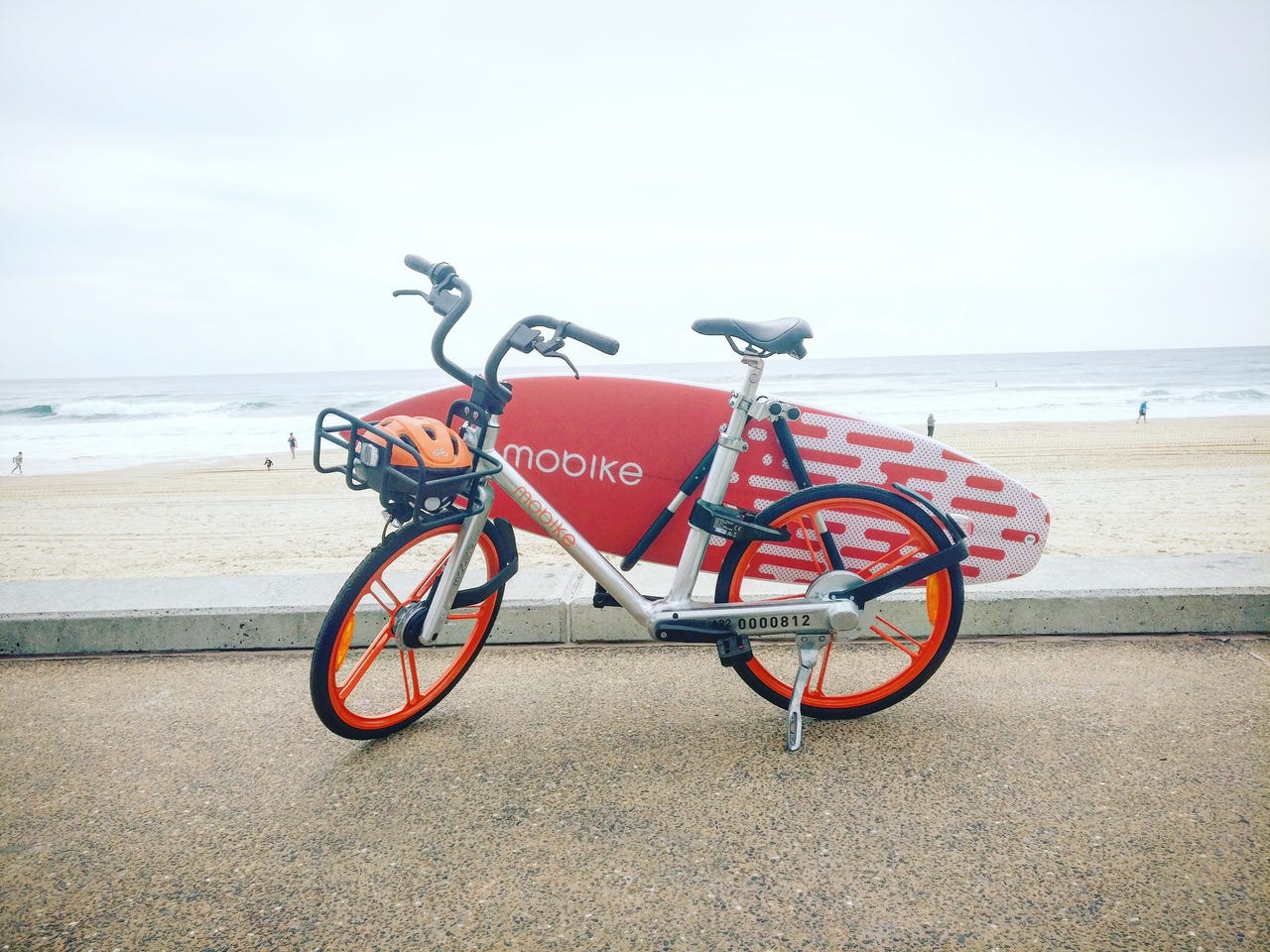Chinese bike-sharing startup Mobike launches in the Gold Coast


China's Mobike has announced launching in the Gold Coast after being granted the exclusive right to operate its dockless bicycle-sharing program from municipal authorities in the region.
Approximately 2,000 bikes will be rolled out across Southport, Surfers Paradise, Broadbeach, and Varsity Lakes by January next year, in partnership with Transit Australia Group and Good Cycles.
Mobike, which raised $600 million early this year, said the design of its bikes have been tailored to the Australian market, including internal three-speed gears, a larger frame, and 26-inch wheels, as well as front and rear lights for safety. Some bikes will also be equipped with surfboard racks, and all of them have a fix-free lifespan of four years, according to the company.
To use the service, Gold Coast residents are required to download the Mobike app on their Android or iOS device, find a bike that is parked in a pre-approved riding zone, and scan the bike's QR code, which instantly unlocks the bike.
Users can complete their rides by parking and manually locking the bikes at authorised parking areas near their destination.
"We've chosen a team with both international and local expertise to ensure our city becomes a bikeshare success story," Gold Coast Mayor Tom Tate said in a statement.
"The scheme provides flexibility for users who can park the bike in designated parking areas or in other appropriate locations without the need for parking infrastructure. The bikes will be rolled out strategically and increase availability to meet demand, and we are delighted they will be on the streets in time for Gold Coast 2018 Commonwealth Games."
Chris Martin, Mobike's VP of International, said the company is additionally exploring opportunities in other Australian cities.
"[We] hope that our partnership with City of Gold Coast will give other councils the confidence to work with us to deliver a quality bike share experience to more Australian communities," Martin said in a statement.
Data collected and analysed by Mobike's "Magic Cube" artificial intelligence platform can be used by city planners and managers for "smarter, more optimised operations and infrastructure", the company said, claiming that no other bike-sharing company provides this service.
The launch of Mobike in Australia comes after its main Chinese competitor Ofo announced its launch in Sydney in October. Both unicorns have been expanding aggressively beyond their home countries after closing significant investment rounds.
Mobike, which launched its service in Shanghai in April 2016, now operates in more than 180 cities in countries such as Italy, Japan, Singapore, and the United Kingdom. Its users have collectively cycled more than 5.6 billion kilometers, which the company claims is equivalent to reducing CO2 emissions over 1.26 million tonnes.
Despite this, the rise of bike-sharing has been criticised for crowding roads, footpaths, and parking lots, with local governments in China being pressured to introduce rules to reduce congestion, according to state news agency Xinhua.
Local governments in cities such as Shanghai and Tianjin have already started introducing rules that require companies to hire at least one maintenance employee for every 200 bikes and limit a bicycle's service life to three years, Xinhua has reported.
Shanghai Municipal Transportation Commission announced in August that no new shared bikes will be allowed into circulation in the city, capping the number at 1.5 million.
The local regulator also demanded bike-sharing firms combat improperly parked bikes in the city, for which both Mobike and Ofo have expressed support.
Unlike Ofo and Mobike, more than 30 bike-sharing apps in China have had to shut down, according to the South China Morning Post.
Chongqing-based Wukong Bicycles, for example, was forced to close down in June after losing 90 percent of its bikes within five months of launching. The bikes were not equipped with GPS devices, making them impossible to track.
Related Coverage
Chinese bike-sharing startup Ofo launches in Sydney
200 bicycles have been deployed in Sydney's CBD, with an additional 200 to be added in Waverley and Inner West suburbs in the upcoming weeks.
Tencent invests $400 million in Indian cab-hailing firm Ola
The Chinese technology giant is eyeing more overseas startups in a bid to diversify its investment portfolio.
Brazil passes weaker version of mobility app bill
Drivers working for Uber and equivalent companies will have to comply with a number of rules; Lower House will give the final decision.